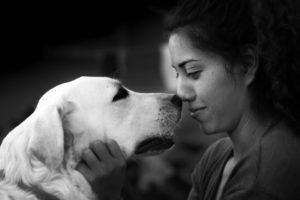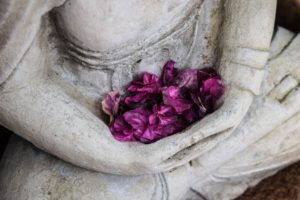
I’ve noticed that I’ve been using the term “unconditional love” in some of my most recent posts. I wondered why. I’ve never thought much about the term, or what it means, until the last year or so.
One of the things I most appreciate about life is the fascinating journey of it all. When I came to Maine, I knew exactly what I wanted. I was sure it was here, waiting for me, the love I’d been looking for all my life.
I was wrong.
Rather, I was not wrong. What I was wrong about was how that love would present itself, how it would look and feel and be expressed. I realize now part of what I was searching for was unconditional love, and it is indeed here.
But it was there, in my old place in Colorado, too. The possibility of unconditional love has been with me every day of my life, and my inability to understand that meant I also did not recognize unconditional love that others gave me.
You see, it had to start with my ability to extend it to myself, and I never was able to do that until recently.

Unconditional love is best defined by its opposite — conditional love. Love is “an intense feeling of great affection (Oxford Online Dictionary).” Conditional love is the intense feeling of affection we give to others as long as they are compliant with our expectations.
In other words, as long as the one we “love” behaves in a manner we approve of, we “love” them. If our “loved” one makes choices, develops beliefs or expresses themselves in ways we disapprove of, we withhold or withdraw our love. Conditional love always comes with iron chains attached to it.
Much of the confusion around what unconditional love is has to do with our individual beliefs about how to express and receive love. “An intense feeling of great affection” can probably be communicated in as many ways as there are human beings, and that’s where the trouble starts. We don’t just want to be loved. We want that love to be communicated in specific ways, or we reject it. We also want to demonstrate our love for others in specific ways they may reject.
A further layer of confusion occurs because sometimes we identify our desire for power, control, codependency, romance and other benefits as “love.”
Conditional love is a manipulative tool used to benefit the one who claims to be the lover.

Unconditional love is a state of being in which love is extended to others selflessly, with no thought of reciprocity or benefit to the lover. Unconditional love is free. It’s not payment of a debt, and it doesn’t have to be proven. It’s a spiritual practice, an offering we choose to make over and over. Sometimes it’s completely invisible and unappreciated. We can unconditionally love people who don’t meet a single one of our needs.
When we think about love, are we thinking more about giving it or receiving it? I admit I’ve spent most of my life thinking about receiving love (or not receiving it in the form I wanted!) rather than giving it. I also admit I haven’t always recognized the love I have received. Further, I haven’t always recognized the difference between toxic relationships and giving and receiving healthy love.
On the other hand, I know a lot about codependency!
I don’t want to admit unconditional love is impossible to give others if we can’t give it to ourselves, because the truth is I just figured out how to do that and I was a new parent (the parent-child bond is the most important place for unconditional love) 30 years ago. I have never experienced the depth and intensity of the love I felt as a new parent, either before or since, but I’m only now growing into my ability to extend truly unconditional love to my (now adult) children.

When I was a new parent with young children, I took it for granted the love I felt for them would always be returned in a way I could understand and appreciate. It wasn’t a condition of my love that they do so, but it certainly was an unconscious and deeply-rooted expectation. Since the moment of conception, they were my priority and the center of my world, and I assumed, without really thinking about it, we would remain the most important, intimate and trusted people in one another’s lives.
My love for them was not and is not conditional. I know that now after receiving some brutal and much-needed reality checks! As they have stepped into their adult lives and the inevitable challenges and journeys life brings to us all, I’ve understood they are not responsible for responding to my love in any particular way, and I’ve also understood the fact of their continuing love for me, expressed in their own unique ways rather than the ways I expect and want!
Our longing for love can be all-consuming, and sometimes we sacrifice everything we are and have in order to find it. Unless we can unconditionally love ourselves, we become absolutely dependent on those around us to convince us we’re loved. Our dependency leads us into pseudo self, self-destructive choices, enabling and despair.
Nothing and no one can replace our love for ourselves. No one can love us and express that love to us in a meaningful way better than we can, not a child, not a lover, not a family member or friend. Our desperate external search is a waste of time and energy. It also exhausts and depletes the people around us and results in a painful pattern of broken relationships. Nothing is more futile than trying to prove our love to someone.
Unconditional love does not mean love without boundaries. It doesn’t mean relinquishing the power to say no (or yes). It doesn’t mean there’s no physical distance between ourselves and those we love. It doesn’t mean we agree on everything. It doesn’t mean we accept abuse or manipulation, or enable destructive behavior.
Unconditional love is clear-eyed; it doesn’t argue with what is. We accept ourselves and others in all our weaknesses, wounds and struggles. However we need to be, we love ourselves through it. However others need to be, it’s okay with us, AND we reserve the right to take care of ourselves, whatever the circumstances.
Sometimes unconditional love requires the hardest thing of all — letting the loved one go.

My practice of minimalism has helped reveal to me my desire and ability to extend unconditional love. In order to practice it, I have to release expectations of myself and others, my grievances and grudges, my scorecards, my pseudo self, and some of my stories and beliefs. I need to give up trying to control others, being a victim or a martyr, or being concerned about what others think of me.
Most important and difficult of all, I must take responsibility for my own needs and choices, choosing to love myself, day by day, unconditionally, because I know I’m doing the best I can in life and I’m worthy of the same compassion, kindness, respect, loyalty and support I give to others.
As adults, it’s not the love and recognition we long for and demand from others that makes us whole, heartful and soulful. It’s the unconditional love we give ourselves that allows us to make positive contributions, shape healthy relationships, and lead effective lives.
We stand on the threshold of a new year. We could approach this fresh start with unconditional love for ourselves, for some of those around us, and for life in general. We could release our fears and expectations about the future and retain a simple intention of unconditionally loving whatever the new year brings to us, difficult challenges and changes as well as unexpected opportunities and joys.
© 2019 – 2022, Jenny Rose. All rights reserved.
Once again …you nailed! Thank you?
Thank you, Pam!